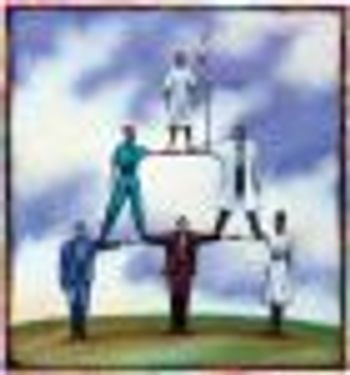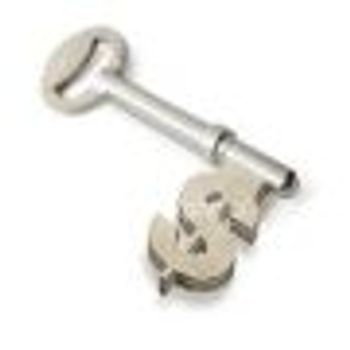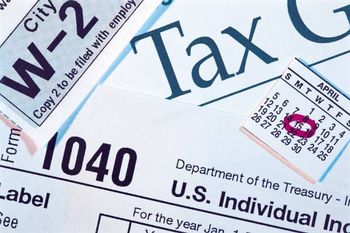
Hard economic times make for hard choices. One of the hardest for adult children is to go back home to live with Mom and Dad.

Hard economic times make for hard choices. One of the hardest for adult children is to go back home to live with Mom and Dad.

The last few months have been a real test of investor fortitude and preparation. While the market losses have not been particularly severe compared to past history, the media has declared a crisis.

A conventional view of healthcare cost containment is to seek out the lowest price consistent with an adequate level of quality care.

Even as many investors are searching for safe havens, others are sifting through some of the riskiest investments in search of a place to put their money.

A couple of market bouncebacks in recent days can't hide the fact that we're in a long-term or "secular" bear market that began in 2000.

The domino effect set off by the landslide in the stock market eventually hit Treasury Inflation Protected Securities (TIPS), which went through the same kind of panic selling that hit equities.

As use of the Internet as a communications tool continues to grow, and more and more physicians adapt to that growth via the posting of medical blogs, the door may be opening to increased violations of patient privacy and medical malpractice issues.

As the presidential election draws closer, many are watching the candidates to see how they propose to reform the nation's healthcare system. Plans from Senator Obama and Senator McCain both involve ways to extend healthcare coverage to more of the nation's 45 million uninsured.

Retirees who were salaried employees during their stint at GM are starting on an unfamiliar quest—shopping for health insurance.

Although the use of Botox to smooth out facial wrinkles has been approved by the Food and Drug Administration since 2002, the drug has also been used for years to treat chronic migraine headaches, even though it does not have FDA approval for this use and many skeptics doubt that it's truly effective. That may soon change.

Want a car loan at 2.4% or a 4.6% mortgage? Look to Mom and Dad—not your bank.

Despite the estimated $5 billion that pharmaceutical companies spend on direct-to-consumer advertising, a recent study published in the British Journal of Medicine concludes that the ads may not make a lot of difference in drug sales. According to the study, ads for the allergy medication Nasonex and the rheumatoid arthritis drug Elbrex failed to move the prescription rate needle upwards after an ad campaign.

If you've been thinking about integrating an electronic medical record into your practice but have yet to pull the trigger, welcome to the club. The National Center for Health Statistics reports that roughly one-quarter of office-based physicians are using full or partial EMR systems. In other words, three-quarters of the physician universe is still in limbo.

Setting up a trust as your IRA beneficiary can help you accomplish your goals and possibly reduce estate taxes. But it works only if you have sufficient assets and the right objectives and individual circumstances.

When Congress created the Roth IRA a decade ago, it seemed like a good financial move to convert a traditional IRA, where assets and earnings are tax-deferred, to the new Roth, where earnings and subsequent withdrawals are tax-free. The law put a couple of obstacles in the way, however.

The completely re-bodied, restructured Nissan Maxima 2009 model just went on sale. It's visually hot and mechanically tasty. Maxima is so new, you probably haven't noticed it yet. Once you see it, you will notice the unique shape and style.

According to an analysis of Department of Justice records between 1996 and 2005, whistle-blowers helped the DOJ recoup $9.3 billion from healthcare providers accused of defrauding federal and state governments over that 10-year period. And according to some experts, the figures in the study, which was published in the Annals of Internal Medicine, may be conservative, since some of the biggest fraud recoveries came after 2005.

It doesn't take an advanced degree in mathematics or accounting to know that the more money you make, the more taxes you pay. What might surprise you is where you stand on the income scale and how many of the country's income tax dollars come out of your pocket. According to recent statistics from the IRS, taxpayers in the upper tax brackets pay a surprisingly large percentage of the personal income tax tab.

It's been an interesting year so far for bond investors. With interest rates plummeting and risk-averse investors flocking to fixed-income instruments, some bonds—particularly short-term Treasuries and agencies—have provided solid overall returns despite extremely low yields.

Gloom and doom. The bears on Wall Street are viewing any stock market recovery as a temporary blip and are advising investors to sell into any rallies. The crisis over Lehman Brothers, AIG, Merrill Lynch, and others may be just the beginning, say the pessimists, with more bank failures and mergers on the horizon (see today's purchase of Wachovia by Wells Fargo) and a bear market that still has a way to go on the downside.

This year's down market has an upside. By selling losers, you can reduce your taxes, prune away unwanted securities, and reposition "tax-ugly" investments.

At the same time that it's been feasting on investors' assets, the current bear market has mauled many of the favorite maxims of investment advisors. Included in the conventional wisdom that's been overturned by the rampaging bear is the time-honored buy-and-hold strategy, based on the historical fact that, in the long run, stocks go up.

Despite a continuing rise in healthcare costs, most Medicare beneficiaries will catch a break next year, as the premium for their Part B coverage will stay the same, at $96.40 a month. According to CMS officials, this is the first time since 2000 and only the sixth time ever that premiums have not gone up from year to year. The Part B deductible will also remain the same at $135.

Poker players need to know the odds if they want to win more often than they lose. Similarly, stock investors need to do due diligence to avoid backing more losers than winners.

Over the past 12 years, I have provided advice to many physicians in connection with their disability claims. Often there are secondary depressionary factors as a result of physical symptoms.

The tax code says that anyone who pays a nanny who is not their spouse, parent, a dependent child under age 21, or a non-family member under 18, may owe nanny taxes. Most tax experts, however, believe that compliance with nanny tax rules is extremely low—and for obvious reasons. Not only is paying the tax expensive, but wading through the tax regulations is hard work.

The concept of pooling money to increase investment opportunities and reduce risk is not new. Mutual funds, real estate investment trusts, and master limited partnerships have given Wall Street the power to collect smaller amounts of money from many investors with the goal of increasing returns while reducing volatility. Today, many successful IRA investors are looking to adopt similar strategies to broaden their investment horizons.

With the economy in the doldrums, many companies are dusting off some psychological inducements to get consumers to open their wallets. Ad campaigns that stress the fact that you "deserve" whatever is being sold are becoming more common.

Occasionally, market volatility rears its ugly head. If your asset allocation is right to meet your unique needs and risk tolerance, you can comfortably ignore the day to day gyrations.

There are three types of disability policies: individual, group, and employer-sponsored. As the name suggests, individual disability insurance policies are purchased by individuals directly from the carrier; they provide long-term disability benefits in the event of sickness or injury.